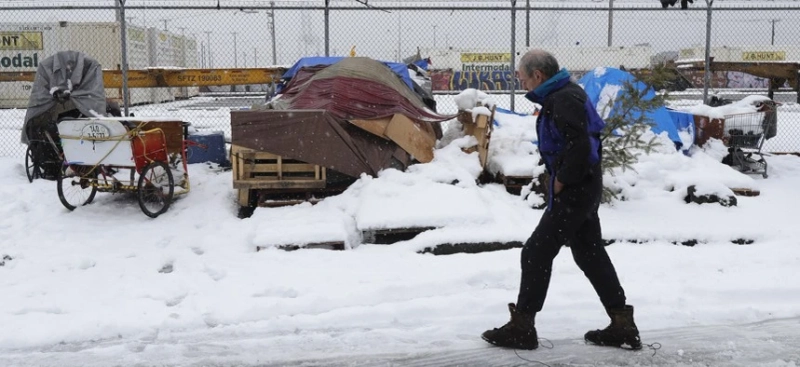As the temperatures drop and the winter season sets in, landlords may find themselves facing unique challenges when it comes to managing rental properties, including the possibility of eviction proceedings. However, it's essential for landlords to understand their obligations and responsibilities, particularly regarding eviction laws during the winter months. In this comprehensive guide, we'll explore what landlords need to know to stay compliant with winter eviction regulations, answering the common question: can you be evicted in the winter?
Understanding Winter Eviction Laws:
First and foremost, it's crucial for landlords to familiarize themselves with the laws and regulations governing winter evictions in their jurisdiction. While eviction laws vary from state to state and even within municipalities, many regions have specific provisions in place to protect tenants from being evicted during the colder months. These provisions are often referred to as "cold weather eviction laws" or "winter eviction moratoriums."
Applicability of Winter Eviction Laws:
Winter eviction laws typically apply during specified periods, commonly referred to as "cold weather months" or "winter moratorium periods." These periods vary depending on the location and climate, but they often coincide with the colder months of the year when harsh weather conditions can pose significant health and safety risks for tenants.
Exceptions to Winter Eviction Laws:
While winter eviction laws aim to provide protection for tenants during inclement weather, there are exceptions and circumstances where evictions may still be permitted. For example, evictions may proceed during the winter months in cases involving criminal activity, property damage, or lease violations unrelated to non-payment of rent. It's essential for landlords to understand these exceptions and ensure compliance with applicable laws and regulations.
Tenant Rights and Protections:
Landlords must also be aware of the rights and protections afforded to tenants, particularly during the winter months. Tenants have the right to safe and habitable living conditions, regardless of the season, and landlords must ensure that rental properties meet these standards. Additionally, tenants may be entitled to certain protections against eviction, such as the right to notice and the opportunity to remedy lease violations before eviction proceedings can commence.
Legal Requirements for Winter Evictions:
When initiating eviction proceedings during the winter months, landlords must adhere to all legal requirements and procedures outlined by state and local laws. This includes providing tenants with proper notice of eviction, following court procedures, and respecting tenants' rights throughout the process. Failure to comply with these legal requirements can result in delays, legal disputes, and potential liability for landlords.
Alternative Solutions and Resources:
In situations where eviction may be necessary but prohibited by winter eviction laws, landlords should explore alternative solutions and resources to address issues with non-compliant tenants. This may include offering payment plans, mediation services, or referrals to community resources for financial assistance. By seeking collaborative solutions and support, landlords can avoid potential conflicts and maintain positive relationships with tenants.
Communication and Documentation:
Effective communication and documentation are essential components of navigating winter evictions as a landlord. It's important to maintain open lines of communication with tenants, particularly when addressing issues that may lead to eviction. Additionally, landlords should keep detailed records of all communications, notices, and interactions related to eviction proceedings to demonstrate compliance with legal requirements and protect their interests.
Consultation with Legal Professionals:
Given the complexity and variability of eviction laws, landlords are encouraged to seek guidance and consultation from legal professionals experienced in landlord-tenant matters. An attorney specializing in real estate law can provide valuable insights, review lease agreements, and offer personalized advice tailored to the specific circumstances of each eviction case.
Conclusion
In conclusion, while winter eviction laws aim to provide protection for tenants during the colder months, landlords must navigate these regulations carefully to stay compliant and uphold their legal obligations. By understanding the applicability of winter eviction laws, respecting tenant rights and protections, following legal requirements, exploring alternative solutions, maintaining communication and documentation, and seeking legal guidance when necessary, landlords can effectively manage eviction proceedings while preserving positive relationships with tenants and avoiding potential legal pitfalls.


